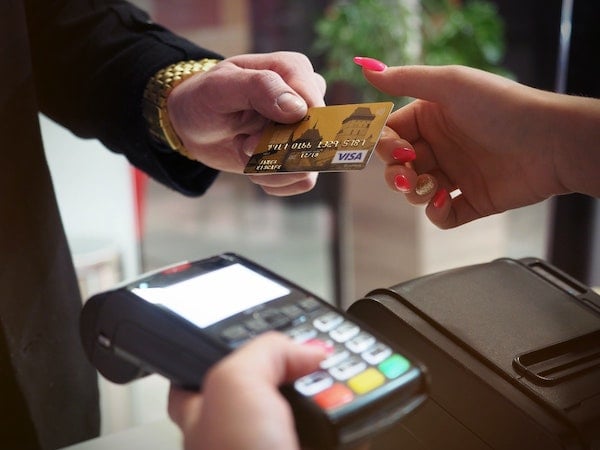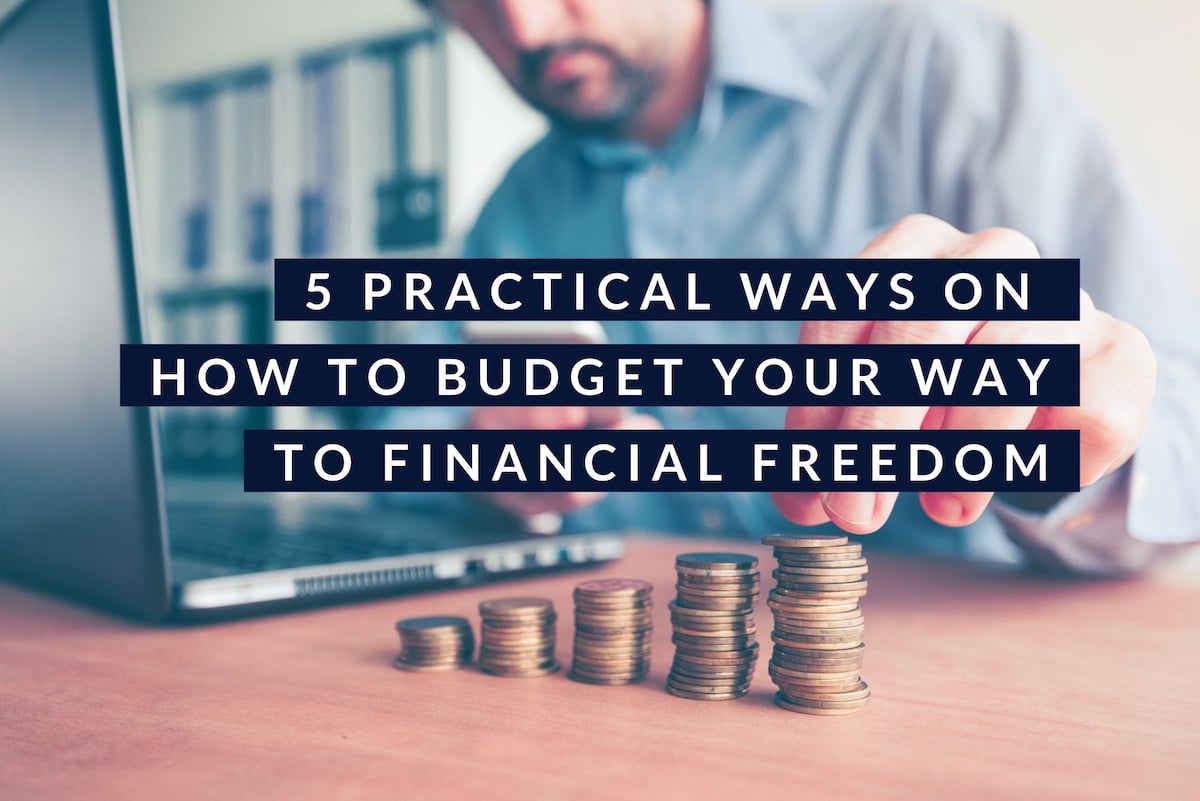Everybody wants to experience “financial freedom”. Some are already there, enjoying the fruit of their patience and hard work. But reality is, there are still a lot of people who are struggling to get out of the rat race, trying so hard to the best of their abilities and capabilities to achieve financial independence. There are no shortcuts. Yes, you may be a millionaire today, but without financial literacy, you can be broke tomorrow.
Do you consider yourself financially free? or are you the one who kept on coming back and still trapped within the same financial dilemma? There are a lot of reasons why people fail financially. Procrastination, fear, lack of income sources, failure to plan, failure to save, unwillingness to learn about handling finances, and many more.
So, how can you rat race-proof yourself? How can you be financially healthy? How are you going to plan your budget? Here are 5 practical ways on how to budget your money wisely to help you reach your goal to financial freedom.
1. DON’T FORGET TO MAKE A PLAN
According to the famous scientist and inventor, Benjamin Franklin, he said “If you fail to plan, you are planning to fail.” This quote is not just about our life’s plans in general, this also applies to our personal finances.
Having a financial plan is very important because it will be your guide on how you will achieve your financial goals. How to do it? You may follow the S.M.A.R.T. method to make sure that you are creating a realistic plan. Let me break it down for you.
- Specific– Goals must be simple, well-defined, clear, and significant. Example: “I want to save PHP20,000 this year” Setting this clear goal will help you focus on the goal that you want to happen. You can always change it later based on your financial circumstances.(salary raise, business booming, etc.)
- Measurable– Break down each goal and set a criteria, date, or metrics so you can measure your progress and know if your are behind or nearly achieving your set goals. For example, if you’re hoping to save PHP20,000 within a year, you can set a midway target(6th month) of at least PHP10,000. You can even set a day to day budget target, if you save PHP54.80 for all 365 days, then you’ll have PHP20,002 in a year.
- Attainable– A plan must be achievable or attainable. List the things that you need to do to put your plan into action. Start asking yourself “what should I do so I can meet my target budget allocation goal?” Maybe, instead of going to an expensive cafe everyday for coffee which costs about P110 minimum, why not set your budget for 3-in1 coffee which just costs PHP6-7. Imagine how much you can save if you do this. Starbucks everyday: 110×365=PHP40,150 vs. 3-in-1 Coffee: 6×365=2,190.
- Realistic- Your goal is considered realistic if it can be accomplished based on available time and resources. For example, challenge yourself to save as much as you can this week, and once you’ve achieved that goal, try to save a bit more the next week. Each checkpoint that you clear will bring you one step closer to achieving your goal.
- Time bound- Always set a time frame for accomplishing your goal. Without a time frame tied to your goal, there will be no sense of urgency and motivation to make your goal happen. List down your short-term(1 year), medium-term(within 2-5 years), and long-term(over 5 years) goals. Then work them into your monthly budget and track your efforts to see how your goals fit into your daily life. At the end of each month, evaluate the progress you’ve made and decide if any changes or adjustments are needed.
2. KNOW WHERE YOUR MONEY IS GOING
Track both your income and your expenses. Small purchases from time to time can add up quickly, and before you know it, you’ve already overspent, leaving just a little sum of money on your savings. To prevent this from happening, make a solid budget that you should strictly follow. Make a spending journal. Categorize. There are available apps available that you can use to track your spending and income, or you can do it manually on a separate paper.
I find this principle very useful, “Income – Savings = Expenses”. This formula requires you to develop a mindset to save first before spending. That the “savings” part should be included in the expense category and not what is just left after all expenses and liabilities are accounted and settled.>
3. BE A WISE SPENDER. STICK TO THE BUDGET!
Never spend more than what you earn. It doesn’t mean that you can afford it, you’ll buy it. Remember, impulse buying will ruin your budget. Don’t give in to that red big SALE tag. Every time that you’re going to make a purchase, always ask yourself… “Does this fit within my budget?”,“is it a need?, “is it a want?”. <
Needs are essential for you to be able to work, live and survive such as food, gas, electricity, insurance, housing and transportation. Wants are things that can help you live more comfortably, but could live without. These are things that you buy for fun or leisure such as travel, dining out, entertainment subscriptions, or extra smartphone.
Do some research first before buying something especially with big purchases. You can always delay it, this will give you time to compare prices, find alternatives and to evaluate whether the purchase is really necessary. Here’s another important tip. Never let others influence your decision making when it comes to buying stuff. No matter how encouraging and tempting, don’t buy items you didn’t plan to get.

4. USE CREDIT CARD TO YOUR ADVANTAGE
Credit card is a powerful money tool that can be used to purchase or pay things conveniently without having to carry some cash. You can use a credit card as a compliment to your budget. However, lots of people are taking advantage and abusing its benefits. They spend and spend until they reach their credit limit. When the monthly statement bill arrives, they’ll will be surprised how big it is. And since the big sum of payable is not within their budget range, they tend to just pay the minimum payment which incurs interest. Now debt is in the table.
Getting into debt can be a stressful cycle that is tough to get out of. You end up spending more on interest, instead of putting that money in your savings. That is why you should only use your credit card if you are certain and will be able to pay it off in full at the end of the month.
If you have a difficulty with your spending habits , particularly using your credit card, and worried that you might overspend, you may ask your credit card company to lower your credit limit down to something you know you can manage every month. You may also leave your credit card at home so you won’t get tempted to use it, not until you pay in full.
Be firm and stick to your self-imposed budget limit and don’t spend more than that amount. Don’t be a victim of the credit card trap.
5. PAY YOURSELF. YOU DESERVE IT!
Paying yourself first is about making yourself a priority.If anyone deserves your hard earned money, it’s you.
Before you pay your bills or buy groceries, set aside a budget to pay yourself for savings and investments, for this will help you develop a healthy financial habit. If you put money into your savings every payday, even in small amounts, it will grow overtime. Start conservative first, you can always increase your savings allotment later when you earn more or have some extra income from other sources like business, investments, etc.
As much as possible, try not to take out some of your savings or investments for everyday expenses. You should allocate a separate budget for that. Once you put money into your savings account, try not to take it out again, unless badly needed for emergency.
Don’t get discouraged if you do not immediately see the benefit of this, but believe me, it would save you big time if a financial emergency arises.
Here’s a bonus tip: DON’T FORGET TO TREAT YOURSELF WHENEVER YOU REACH A GOAL. Get that well-deserved pampering, or treat yourself to a nice meal, travel to your favorite place, anything that will make you happy.

















Leave a Reply